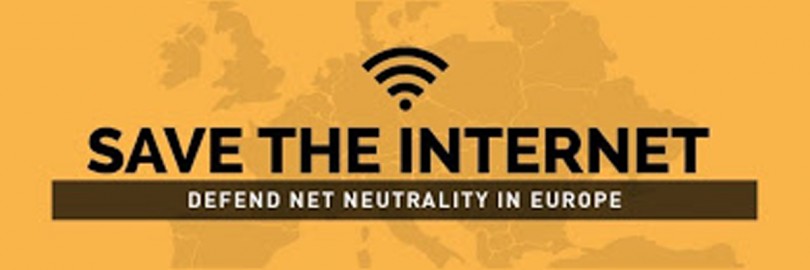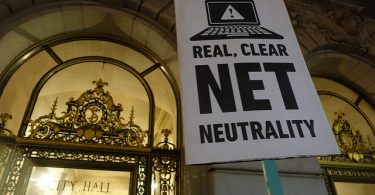Tomorrow, October 27th 2015, will see a key vote in the European Parliament on net neutrality. Ahead of this, here is a blog post from Sir Tim Berners-Lee, inventor of the World Wide Web, and founding director of the Web Foundation.
—
Tomorrow, members of the European Parliament face a key vote on the future of the internet. The proposed regulations in front of them are weak and confusing. To keep Europe innovative and competitive, it is essential that MEPs adopt amendments for stronger “network neutrality” (net neutrality).
When I designed the World Wide Web, I built it as an open platform to foster collaboration and innovation. The Web evolved into a powerful and ubiquitous platform because I was able to build it on an open network that treated all packets of information equally. This principle of net neutrality has kept the Internet a free and open space since its inception.
Since then, the Internet has become the central infrastructure of our time — every sector of our economy and democracy depends on it.
To strengthen and clarify the proposed EU net neutrality rules, here are the amendments that MEPs should insist on:
- The current proposal allows ISPs to create fast lanes for companies that pay to have their content load faster by calling them ‘specialized services’ Fast lanes will make it harder for anyone who can’t pay extra fees — start-ups, small businesses, artists, activists, and educators in Europe and around the globe — to reach Europeans online. MEPs should vote for the amendments that close the so-called ‘specialized services’ loophole to prevent the creation of online fast lanes and keep the Internet a level playing field.
- The current proposal permits ISPs to exempt applications from users’ monthly bandwidth cap (“zero-rating”). Economic discrimination is just as harmful as technical discrimination, so ISPs will still be able to pick winners and losers online. MEPs should adopt the amendments that allow member states to create their own rules regulating the harmful practice of zero-rating. That way, States which have already banned this practice will be able to continue to do so, while others can move to protect innovation if they choose.
- The proposal allows ISPs to define classes of services, and speed up or slow down traffic in those classes, even in the absence of congestion. As well as harming competition, this also discourages encryption: many ISPs lump all encrypted services together in a single class, and throttle that class. MEPs should vote for the amendments that ban class-based discrimination to protect users, competition, privacy, and innovation online.
- The proposal allows ISPs to prevent “impending” congestion. That means that ISPs can slow down traffic anytime, arguing that congestion was just about to happen. MEPs should vote to close this loophole.
If adopted as currently written, these rules will threaten innovation, free speech and privacy, and compromise Europe’s ability to lead in the digital economy.
To underpin continued economic growth and social progress, Europeans deserve the same strong net neutrality protections similar to those recently secured in the United States. As a European, and the inventor of the Web, I urge politicians to heed this call. Meanwhile, the Web belongs to all of us, and so it’s up to each one of us to take action. European residents can visit the savetheinternet.eu website today to contact their MEP and ask them to vote for the amendments that will protect the open Internet for us and future generations.
– Tim Berners-Lee, inventor of the World Wide Web, Founding Director of the World Wide Web Foundation




Leave a Comment